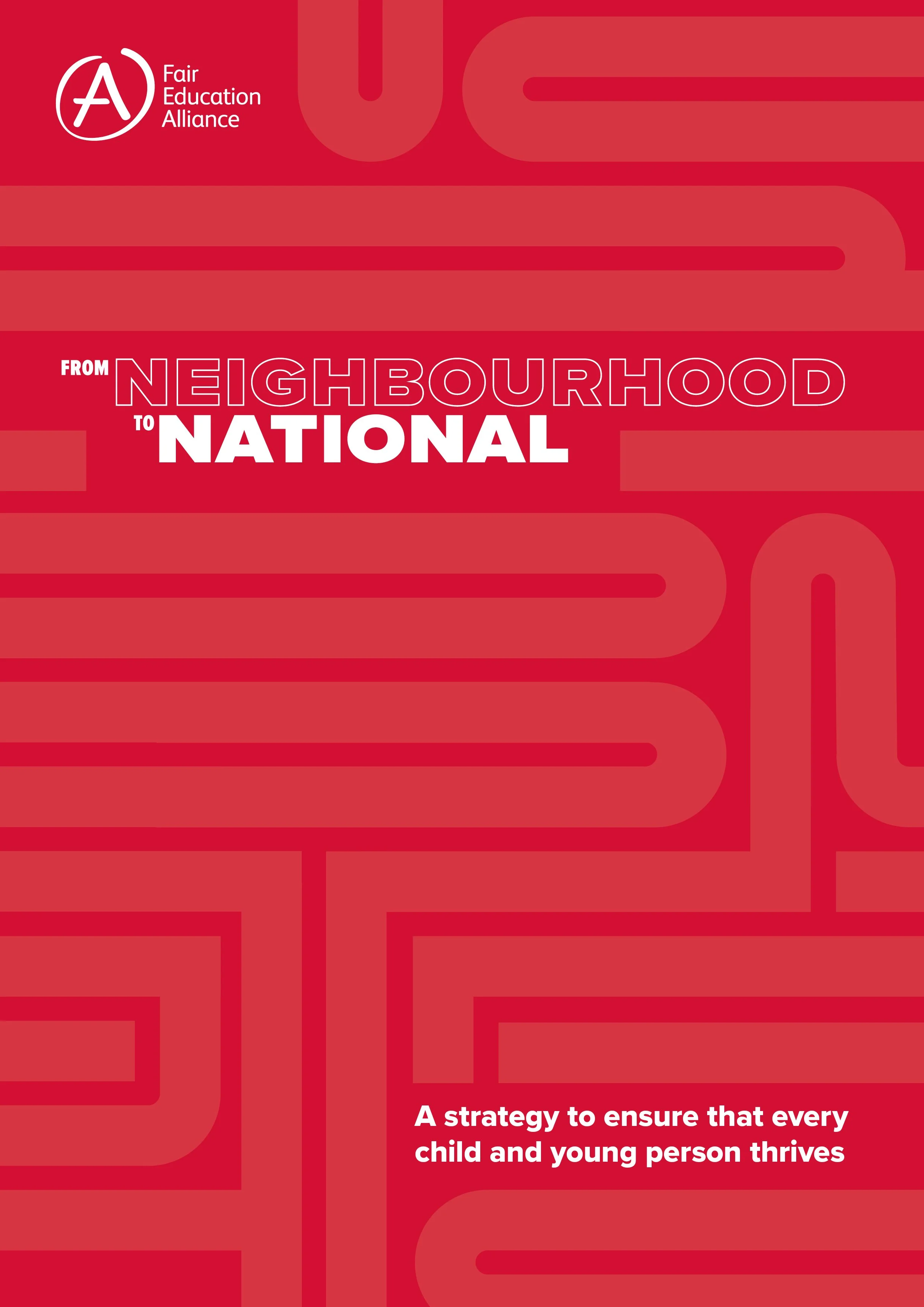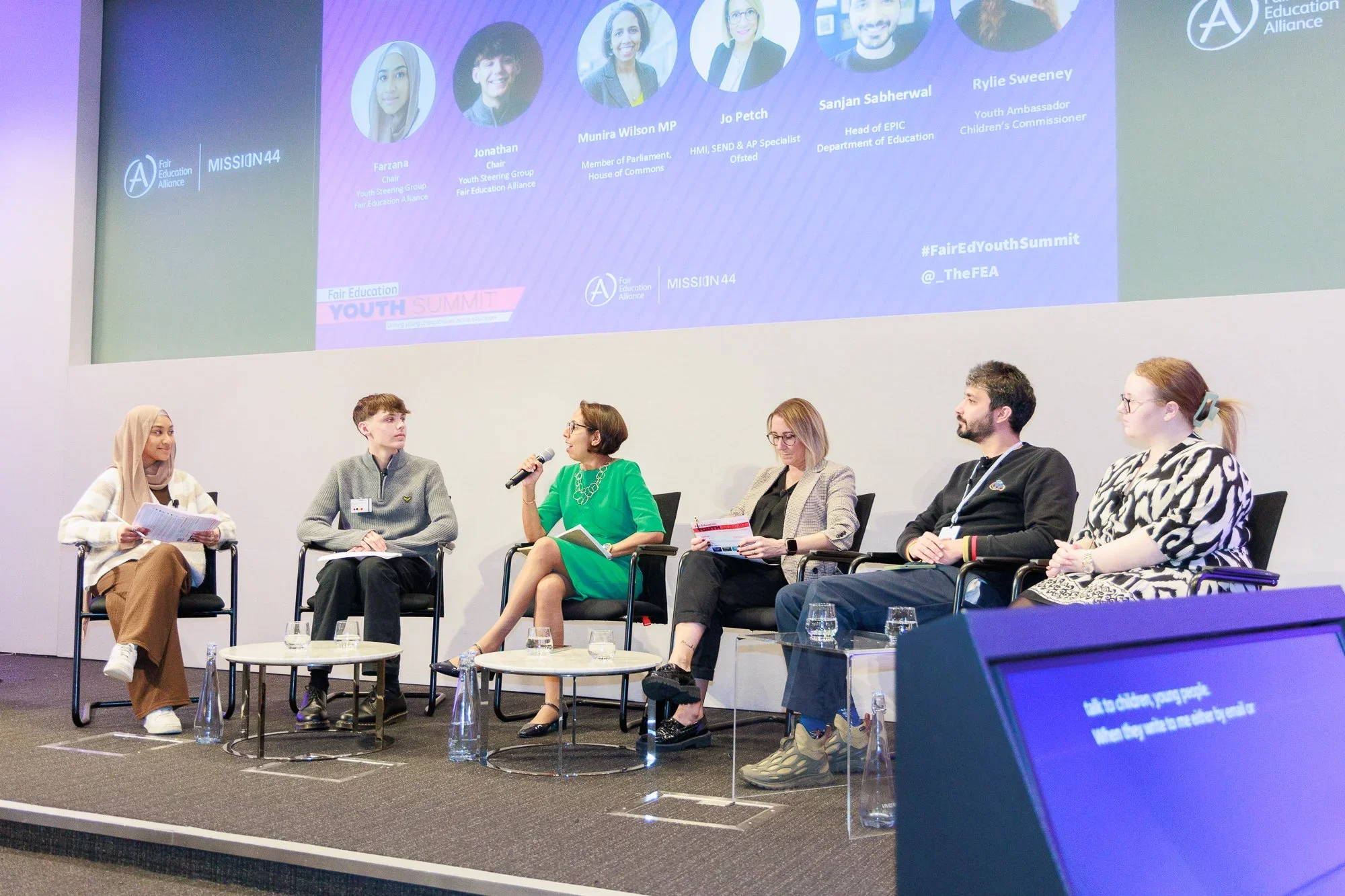From Neighbourhood to National: A Strategy to ensure every child and young person thrives
Every child deserves to thrive, regardless of their background. Yet educational inequity remains one of the most urgent challenges of our time. Today, one in three children is growing up in poverty. This significantly impacts their outcomes in attainment, wellbeing and skills throughout childhood – and ultimately their life chances.
That's why our new strategy, Neighbourhood to National is rooted in systems change - tackling not just policies and practices, but also the power, resources, relationships, and mental models that hold inequity in place.
Education inequity - one of the most urgent challenges of our time
By the end of primary school, children from low-income households are already 10 months behind their peers
At the end of secondary school, that gap has widened to almost two years. These gaps stretch beyond academic attainment into early development, wellbeing, essential skills, and employment.
Children from low‑income households are 4.8 months behind in meeting early learning goals, nearly five times more likely to be NEET (not in employment, education or training), and three times more likely to be severely absent from school.
The gap in access rates between young people from low‑income households and their peers increased to the widest recorded level in 2022/23 at 20.8% – up from 20.2% in 2021/22. This isn’t because children are failing to meet the system’s expectations – it’s because the system is failing to meet their needs.
Today, 4.5 million children in the UK – that’s one in three – are growing up in poverty. This level of deprivation places enormous strain on families and significantly affects children’s health, learning and life chances. It also puts schools and services under increased pressure, with more pupils needing additional support at a time when resources are stretched thin.
The education system faces deep‑rooted challenges and under‑resourced services, with issues like SEND provision, mental health, and high absence rates worsening since the pandemic. Schools are stretched thin and face a workforce crisis, while fragmented structures and short‑term funding undermine coordinated, long‑term support.
Our members are united under one vision: No child's success is determined by their socioeconomic background.
We believe that lasting change comes from cross-sector collaboration, rooted in trusted relationships, and we drive impact through three core strands:
-
We amplify our impact by uniting behind a shared voice and creating platforms for young people to lead change. Drawing on insights from across our membership, we shape policy, shift national conversations, and challenge the assumptions that keep educational inequity in place.
-
Through place-based and thematic collaborations, we bring together diverse organisations, sectors and experiences to collaborate and innovate. We work together to build trust, increase understanding, and develop joint solutions that tackle the root causes of educational inequity.
-
Strong, impactful and connected member organisations are the foundation of our Alliance and vital in improving outcomes with and for children and young people. We equip young people, staff and trustees to develop the leadership, connections and skills to collaborate and drive systems change.
Two golden threads weave through all of our work:
-
We believe it is essential to involve and support the leadership of young people with lived experience of the barriers to education we are trying to dismantle. We work to shift power, enabling young people to co-lead the coalition, be heard by decision-makers, and develop skills to enact further positive change.
-
Artificial intelligence will dramatically shift education and employment. We work to ensure that AI policies and practises support, rather than disadvantage, young people from low-income backgrounds. We also equip member organisations to harness technology to increase their impact and develop innovative approaches for our collective work.
How will 'From Neighbourhood to National' improve outcomes for children and young people?
We need to change the system, not just address symptoms. Through our work, we aim to shift the conditions that hold inequity in place, so that:
Policy development and legislation focus on fairness for young people from low-income households
Practices target and support young people with the greatest need
Resources like funding and data are targeted and shared to support collaborative, long-term work
Collaborative relationships enable cross-sector working and are built on shared understanding and trust
Power is shared with people with lived experience of education inequity - especially young people
Mental models shift, so society understands the systemic issues behind inequity — and their role in solving them
How to get involved
If you are a member:
Visit our member page where you can find out what's on offer, how to get involved and how to share the work of the FEA
If you're not a member:
Sign up for the Fair Education Bulletin
Find out more about becoming a member of the Fair Education Alliance





